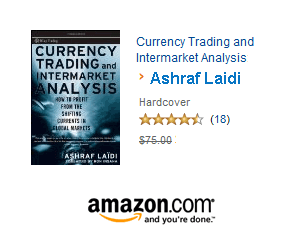Forum > View Topic
by Ashraf Laidi
Posted: Feb 20, 2010 5:00
Comments: 30765
Posted: Feb 20, 2010 5:00
Comments: 30765
Forum Topic:
EUR
Discuss EUR in this thread






but, us must has something after that.
i am a chinese, so i know them.
Well said. To be precise, correct me if i'm wrong, it was June 6th approx. 630pm! somewhere in US!
Not sure if the timing tallies exactly though.
Looking on the daily chart, the turn in the market was after the low of 7th June, before the "Yuan Depeg" announcement. Perhaps there were other factors that started the turn, like bad US data, Euroland manoeuvring, or perhaps China was just buying Euros at that point.
Also, between 21st-30th June, the upward swing seemed to have faltered, fooling some of us into believing the long downward trend had resumed. Subsequently, the big upmoves (to date) happened on the 1st July, 13th July and 15th July, with not much in the way of retracement in between.
Not being forex savvy I hope you don't mind me asking dumb questions. Does your position mean that you see the USD turning back up aginst falling Euro resuming ? And gold turning up for similar reason? And do you see any such changes in direction being imminent (within 6 weeks)?
Many thanks,
John
I think the solution is the inflation rates in US and in Eurozone. With strict austerity measure
the eurozone will not replace US as export driver for China.
I think the old economy, not founded on sentiment but on mathematics, eventually holds and hence a global deflation is inevitable.
I bet on equilibrium, in fx terms, USDx 78
First sign of retracement today before Europe opens. Let's see if it need to take a (deep) breadth!
Back on June 19, after China announced it was abandoning the yuans peg to the dollar, I wrote an article saying that my suspicion was that it was doing so in order to revalue the euro higher against the yuan by bidding up the value of the euro against the dollar.
Well, it seems to be happening exactly that way.
To review, China pegged to the dollar back in mid-July 2008 just as the financial crisis was about to get into high gear as a way to protect its exports to the US. At the time, EUR/USD was trading around 1.5960 but by June 6 of this year, the pair had hit a low of 1.1876, a 25.5% depreciation of the euro against the dollar.
Now, since the yuan was pegged to the dollar, what that meant was that as EUR/USD declined, the euro was declining by an equivalent amount against the yuan, making Chinese goods far less competitive to the region.
Also, by June 6, the general consensus (based on economists and bodies such as the IMF) was that Europe was at risk of falling into a second recession due primarily to the Sovereign Debt Crisis and Austerity Programs being implemented in places like Greece, Ireland, Spain and Portugal. But even without a second recession, Europe looked set to far underperform the US and certainly the Chinese economy. Additionally, nearly every currency strategist was talking about parity and giant hedge fund traders, like George Soros, were massively short the common currency.
So, if youre China, and you want to support exports to your biggest customer (which Europe is) youve certainly realized by this point that the thing to do is to start appreciating the euro relative to the yuan by appreciating the EUR/USD pair. Problem is, though, that cannot happen as long as the yuan (symbol CNY) is pegged to the dollar and two weeks after that China decided to de-peg and allow the yuan to trade in its daily 0.05% trading band.
Of course, this move was greeted favorably by the US, who had long sought China to allow yuan appreciation relative to the dollar. The fact that it was announced ahead of the June G20 meeting, made the move look even better for the wiley Chinese.
One the next day of trading, June 21, EUR/USD opened at 1.2458. As of the close on July 15, EUR/USD was on 1.2945, a 487 pip (or 3.9%) appreciation. In the meantime, the euro as appreciated by 2.93% against CNY.
There are numerous ways for China to accomplish this but perhaps the best might be to become a buyer of European sovereign debt, primarily because it restores confidence. What is obvious is that someone is doing plenty of buying in the open market because today, Spain was able to sell bonds at a higher price (and lower rate of interest) than offered by the ECB, who announced its intention to purchase debt as the crisis deepened.
Meanwhile, the Treasury, and the Fed, is probably very happy to be seeing the dollar fall against the euro. Aside from helping exports, a falling dollar generally is accompanied by rising commodity prices, which creates a level of inflation (inflation is needed now because of the much-worse risk of deflation). And as we know, a falling dollar is also generally followed by a rise in assets like equities, which of course re-liquefies the system by creating wealth for those (like the big banks) involved.